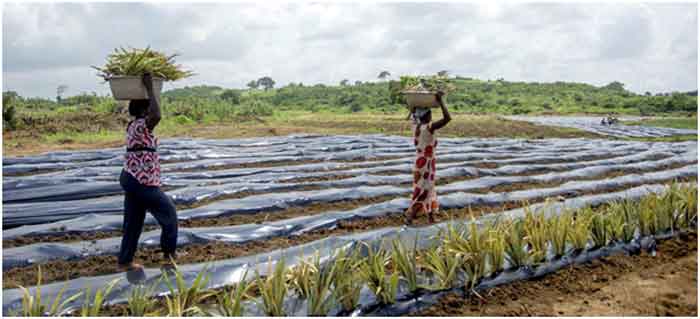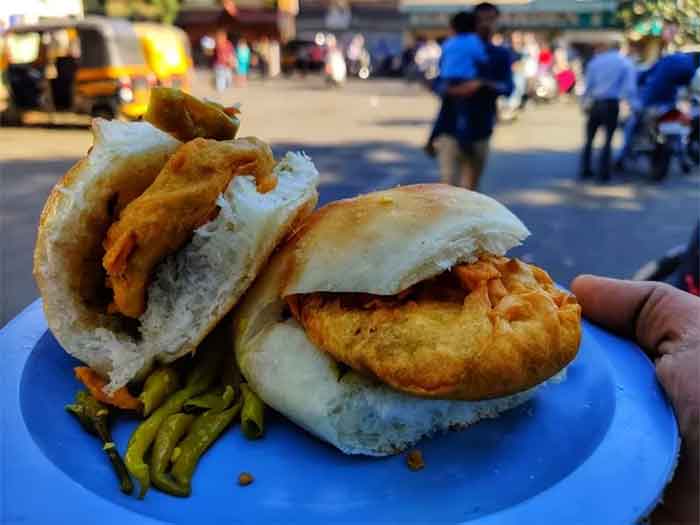
The quantity of plastic used in agriculture, food industries, livestock, etc. industries the world over is millions of tones each year. Asia is the largest user of plastic in these industries. Plastic pollution is a threat to food security. Excess salt in soil also puts food security at risk. Recent reports from the United Nations Food and Agriculture Organization (FAO) have warned this.
News from FAO said:
Plastic pollution has become pervasive in agricultural soils, according to a new report released on Tuesday by the UN agriculture agency, posing a threat to food security, people’s health, and the environment.
While plastic refuse littering beaches and oceans draws high-profile attention, the FAO’s Assessment of agricultural plastics and their sustainability: a call for action suggests that the land we use to grow our food is contaminated with even larger quantities of plastic pollutants.
“Soils are one of the main receptors of agricultural plastics and are known to contain larger quantities of microplastics than oceans”, FAO Deputy Director-General Maria Helena Semedo said in the report’s foreword.
Startling Numbers
According to data collated by FAO experts, agricultural value chains each year use 12.5 million tonnes of plastic products while another 37.3 million are used in food packaging.
Crop production and livestock accounted for 10.2 million tonnes per year collectively, followed by fisheries and aquaculture with 2.1 million, and forestry with 0.2 million tonnes.
Asia was estimated to be the largest user of plastics in agricultural production, accounting for almost half of global usage. Moreover, without viable alternatives, plastic demand in agriculture is only set to increase.
As the demand for agricultural plastic continues surge, Ms. Semedo underscored the need to better monitor the quantities that “leak into the environment from agriculture”.
Weighing The Risks
Since their widespread introduction in the 1950s, plastics have become ubiquitous.
In agriculture, plastic products greatly help productivity, such as in covering soil to reduce weeds; nets to protect and boost plant growth, extend cropping seasons and increase yields; and tree guards, which protect seedlings and saplings from animals and help provide a growth-enhancing microclimate.
However, of the estimated 6.3 billion tonnes of plastics produced before 2015, almost 80 per cent had never been properly disposed of.
While the effects of large plastic items on marine fauna have been well documented, the impacts unleashed during their disintegration, potentially affect entire ecosystems.
Nowhere Safe From Microplastics
And microplastics – less than 5 mm in size – have been found in human feces and placentas as well as been transmitted to fetuses through their pregnant mothers.
While most scientific research on plastics pollution has been directed at aquatic ecosystems, FAO experts say agricultural soils are thought to receive far greater quantities of microplastics.
Since 93 per cent of global agricultural activities occur on land, further investigation in this area is needed, according to the UN agency.
“This report serves as a loud call to coordinated and decisive action to facilitate good management practices and curb the disastrous use of plastics across the agricultural sectors”, said the FAO deputy chief.
Key Recommendations
Lacking viable alternatives, it impossible for plastics to be banned – and there are no ‘silver bullets’ to eliminate the damages they cause.
The report does, however, identify several solutions based on the “Refuse, Redesign, Reduce, Reuse, Recycle, and Recover” model.
The report also recommends developing a comprehensive voluntary code of conduct for all aspects of plastics throughout agrifood chains and calls for more research, especially on the health impact of micro- and nanoplastics.
“FAO will continue to play an important role in dealing with the issue of agricultural plastics holistically within the context of food security, nutrition, food safety, biodiversity and sustainable agriculture”, Ms. Semedo said.
Excess Salt In Soils
Another news from FAO said:
Improper water management, including insufficient supply and poor quality drainage systems, are contributing to excessive soil salinization – a problem that threatens global food security, according to the UN’s Food and Agriculture Organization (FAO).
Soil salinization refers to excessive levels of salt in the soil, which can inhibit plant growth and even be toxic to life. It can occur naturally, for example in deserts due to lack of water and intense evaporation, or as a consequence of human activity.
FAO is highlighting the issue in marking World Soil Day on Friday, ahead of the official commemoration on Sunday.
Soils At Risk
“Soil is the foundation of agriculture and the world’s farmers depend on soil to produce about 95 per cent of the food we eat. Yet, our soils are at risk,” said Qu Dongyu, the agency’s Director-General, in advance of the Day, which is organized around the theme of Halt soil salinization, boost soil productivity.
FAO said unsustainable agricultural practices and the overexploitation of natural resources, as well as a growing global population, are putting increased pressure on soils and causing alarming rates of soil degradation worldwide.
More than 833 million hectares of soils are already salt-affected, representing around nine per cent of the world’s land surface, or roughly four times the size of India.
Salt-affected soils occur in all continents, and under almost all climatic conditions, but more than two-thirds are in arid and semi-arid zones.
Some of the regions most affected are in Central Asia, the Middle East, South America, North Africa and the Pacific.
Challenges In Uzbekistan
Uzbekistan, located in Central Asia, is the world’s largest landlocked country, and is in turn surrounded by other landlocked nations. More than half the soils there are salt-affected, making it extremely difficult to farm productively.
Adyl Khujanov runs a farm in the village of Kyzylkesek, situated in the Karakalpakstan region in western Uzbekistan, which is considered the hottest and driest place in the country.
“I’ve been farming this land all of my life and seen so many people from this area leave over the years because of the heat, dry weather and water shortages,” he told FAO recently.
However, in other regions of the world, soil salination is attributed to unsustainable human activities. These include over use of fertilizers, inappropriate irrigation methods, poor quality water, and deforestation.
Learning New Methods
FAO works with countries to support them in managing soil resources.
In Uzbekistan, FAO’s Global Soil Partnership (GSP) collaborates with scientists to develop climate-smart soil management practices so that crops in salt-affected areas can thrive.
“Thanks to new methods which we have learnt and adopted here to cope with climate change and severe water shortages, I can grow tomatoes, melons, pulses and forage crops to feed animals,” said Mr. Khujanov.
Reliable Data Critical
FAO has also stressed the importance of generating reliable soil data, though it warns that many countries face challenges in this area.
The agency has published the Global Soil Laboratory Assessment Report, which reveals that out of 142 countries surveyed, 55 per cent lack adequate capability for soil analysis. Most are in Africa and Asia.
At the report’s launch, Mr. Qu underlined the need for investment in soil laboratories to provide reliable data that will inform sound decisions for ensuring sustainable soil management and preventing degradation.
He said the recent adoption of a new Soil Strategy by the European Union (EU) is a positive example, setting concrete and ambitious targets to improve soil health within and outside the bloc.
FAO recalled that the vital role of healthy soils in climate change mitigation and adaptation and in building resilience figured prominently at the COP26 conference last month.
The agency has called on all countries to urgently improve their soil information and capacities by making stronger commitments towards sustainable soil management.















































